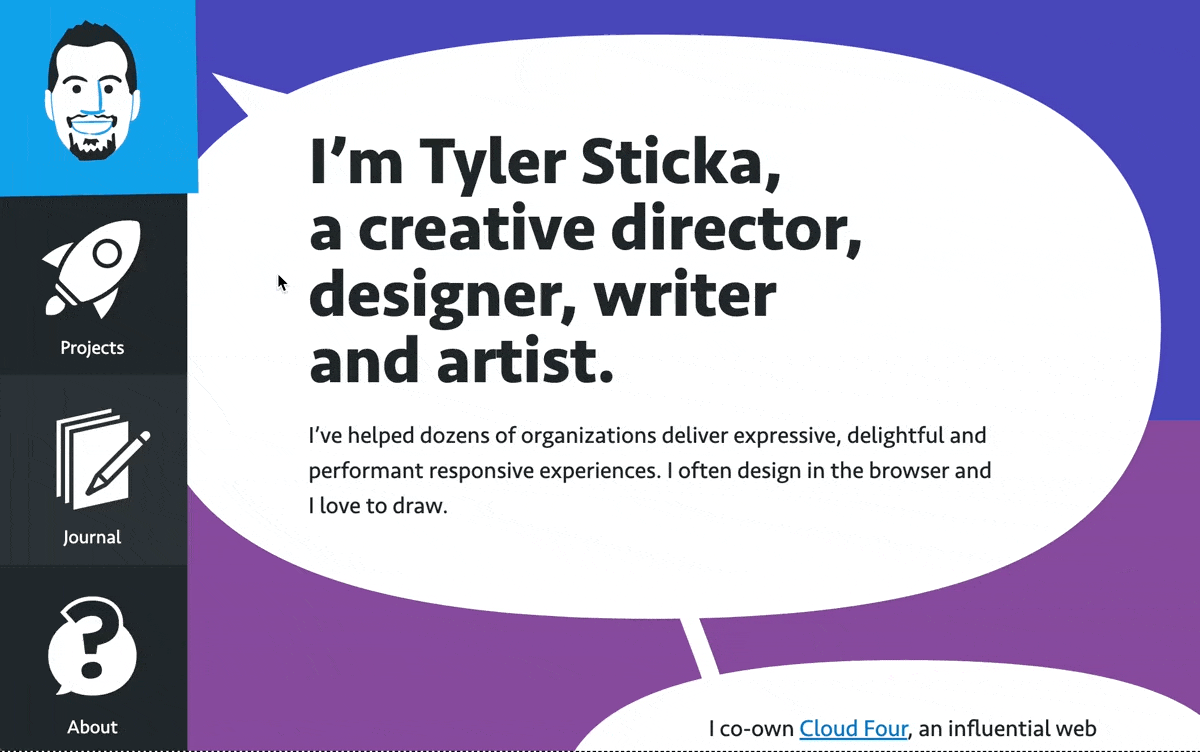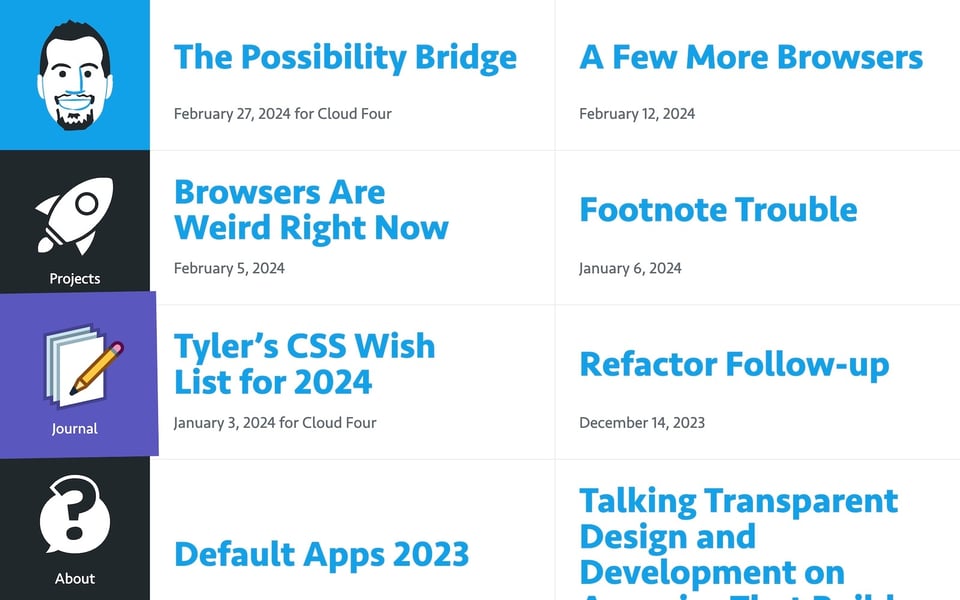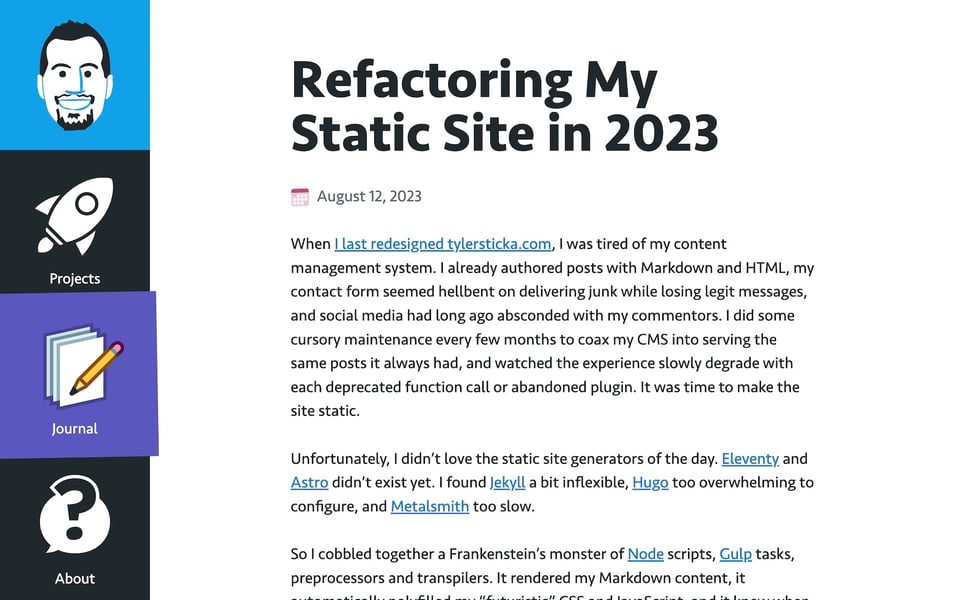Hi All! 🤗
Imagine you post and make new friends on an online network for more than a decade – and suddenly, your account gets suspended for no apparent reason. And there is nothing you can do about it.
Or imagine the online community you were an active part of for years just closes down and all user data gets deleted after a few months. And there is nothing you can do about it.
Or imagine that a site you poured all your thoughts and writing into decides overnight that it might be a good idea to sell access to all user data to a company that is training their large language model with it. And again, there is nothing you can do about it.
Now imagine a place where you actually own your content, your connections, and your online identity.
And now, imagine that this place is your personal website, under your own domain name, under your control.
This is the basic idea behind the IndieWeb.
A Community of Personal Sites
The IndieWeb is a community of independent and personal websites and the people behind those sites creating tools that enable a decentralized, people-focused alternative to the corporate web and its social media silos. Initiated in 2010 by Aaron Parecki, editor of the Webmention and Micropub open web standards, and Tantek Çelik, co-author of microformats, the IndieWeb has grown into an active community with members and followers worldwide.
Events
If you want to get involved, you can attend (or even help to organize) one of the IndieWebCamps, which are regular brainstorming and building events that take place several times a year in the US and Europe. They are a wonderful opportunity to meet like-minded people and work together on community topics and also tinker with your personal site. Typically, an IndieWebCamp will span two days. On the first day, participants learn, share, and discuss ideas and concepts in various sessions. The second day is for creating, hacking, and, at the end of the day, demonstrating what everyone managed to build. It is an exciting and inspiring experience in a very welcoming atmosphere. I’ve been to a few IndieWebCamps (Düsseldorf, Berlin, and Nuremberg) and it was always fantastic!
Another great way to meet people and work on your personal sites together are the Homebrew Website Club meetups that regularly take place in several cities around the globe. See https://events.indieweb.org/ for upcoming events – and don’t hesitate to start something in your city, if you feel like it.
But also if you don’t want or can’t attend in-person events or join the IndieWeb chat, there are many ideas and technologies that have come out of the IndieWeb movement and its underlying principles that are worth checking out.
POSSE
One of the most useful and impactful concepts of the IndieWeb is the idea to publish everything you create on your own site first and then syndicate it elsewhere, also called POSSE. This simple but effective principle allows you to stay in charge of your content and each post‘s canonical URL while also distributing it into the many different social networks and online communities where friends who aren’t part of the IndieWeb or don’t (yet) have a personal site might hang out. And because you ideally always link back to your original post, discovery of your original content is improved as well. You can learn more about the many advantages of POSSE on the IndieWeb wiki: https://indieweb.org/POSSE
Webmention
Another IndieWeb building block that you’ve probably heard of before is the Webmention protocol. Webmentions allow you to collect interactions like comments, likes, reposts, or other responses from various sources and feed them back into your site. How it works is simple: if you link to a website in a post, you can send a Webmention to notify it. If the site supports Webmentions, it may display your post as a reaction. And you can do the same for all sites that send you a Webmention. This way, you can have a conversation from one website to another, sending posts back and forth.
There are also many other promising tools like IndieAuth, which lets you use your own domain to sign in to other sites and services, Micropub, an API for creating, editing, and deleting posts on websites like your own, or WebSub, an open protocol to send and receive notifications when web content – like the feed of a personal website – is updated.
The IndieWeb – For Everyone?
One complaint I frequently hear though when I talk to people about the IndieWeb is that many of its technologies are still not accessible enough to people without a web development background. And there is some truth to that. Despite a growing number of useful plugins, for example for WordPress or Kirby, and a lot of helpful articles and tutorials, e.g. for Eleventy, many of the solutions that the IndieWeb offers are still very much nerd territory. All the more important are projects like the amazing Indiekit by Paul Robert Lloyd, a little Node.js server with all the parts needed to publish content on your personal website and share it on social networks.
The IndieWeb has already been playing a key role in developing many of the tools that make an independent, decentralized network of personal websites possible. This in itself is invaluable. Now it is on all of us to implement more and more of those features into our sites, build even more tools and solutions for the independent web, and help to lower the barrier of entry so that the IndieWeb’s vision of owning your content and online identity will be more accessible to evermore people. Every step we take will change the Web for the better. Because ultimately, the IndieWeb is for everyone.
The next chapter of the IndieWeb awaits and the fight for an independent, open web seems more worthwhile and promising than ever. Tim Berners-Lee once said: “You can make the walled garden very very sweet. But the jungle outside is always more appealing in the long term.”
Let’s make this jungle wild, exciting, and beautiful again.
Links
Here’s another mixed bag of links. Please let me know how you like them! And if you can think of someone who would enjoy reading this newsletter today, feel free to forward along.
Take Back Your Web
In 2019, IndieWeb cofounder Tantek Çelik gave a fantastic talk at beyond tellerrand about the independent web, why you should have your own domain, and how we all might take back our web.

Tantek Çelik was speaking at beyond tellerrand 2019 in Düsseldorf
Tantek Çelik has been active in open web standards innovation, development, and advocacy for over 20 years. He is currently Web Standards Lead at Mozilla, community leader of indieweb.org & microformats.org, and participates in the World Wide Consortium (W3C) Cascading Style Sheets (CSS) Working Group. He is the author of HTML5 Now: A Step-By-Step Tutorial for Getting Started Today (New Riders: 2010). He co-edited the W3C Recommendations CSS 2.1, CSS3 Color, & CSS3 UI, co-founded GMPG, BarCamp, ...
IndieWeb Carnival: Roundup
Manuel Moreale, who also sends out the great newsletter People & Blogs, hosted February’s IndieWeb carnival. The topic he picked was “digital relationships” and he received a whopping 44 blog posts in response. Here’s his roundup post:
👉 https://manuelmoreale.com/indieweb-carnival-roundup
“I don’t want to write articles — I want to blog.”
Greg Storey shares his observations from the recent redesign of Kottke.org and how much it is a very intentional, content-first design.

“I don’t want to write articles — I want to blog.”
If there was ever a sign that personal sites and blogs are making a comeback, I can’t think anything better than the top-to-bottom redesign of Kottke. After all, Jason’s site is the quentisentail blog or The Blog of Blogs. A lot of thought went into the new look
Go ahead and block AI web crawlers
Could it be easily ignored by some of the AI companies crawling the open web and breaking the basic social contract of the Web? Sure. Does it still make sense to disallow AI crawlers via your robots.txt file? Probably. And in this case, Cory Dransfeldt’s post, which also includes an extensive robots.txt, will prove very useful.

Go ahead and block AI web crawlers • Cory Dransfeldt
AI companies are crawling the open web to, ostensibly, improve the quality of their models and products. This process is extractive and accrues the benefit to said companies, not the owners of sites both small and large.
Case Study: lynnandtonic.com 2023 Refresh
In this amazing case study, Lynn Fisher shares how she approached her latest website refresh and how she created the incredible street scene animations for the site.

Case Study: lynnandtonic.com 2023 refresh | Lynn Fisher
Thoughts and process for the lynnandtonic.com 2023 redesign.
aboutideasnow.com
aboutideasnow.com lets you find people to talk to or collaborate with by searching across the /about, /ideas and /now pages of (currently) 6492 personal websites. And it is also a great way to find more interesting sites to follow.
🚀 Personal Site of the Week 👾 Tyler Sticka == https://tylersticka.com
Tyler Sticka is a creative director, designer, writer and artist. He is a partner at Cloud Four and co-founder of Backabit, an independent mobile game studio. His personal site, which is built with Eleventy, combines charming illustrations and SVG animations with clear typography and a journal full of interesting and useful blog posts about design, web standards, and Tyler’s own hobbies and interests.



And that’s it for today. How did you like this issue? Which one of the links was your favorite? What do you want more or less of? Do you have any other suggestions on how to improve this newsletter? Hit reply now and let me know.
Cheers! ☀️
– Matthias
